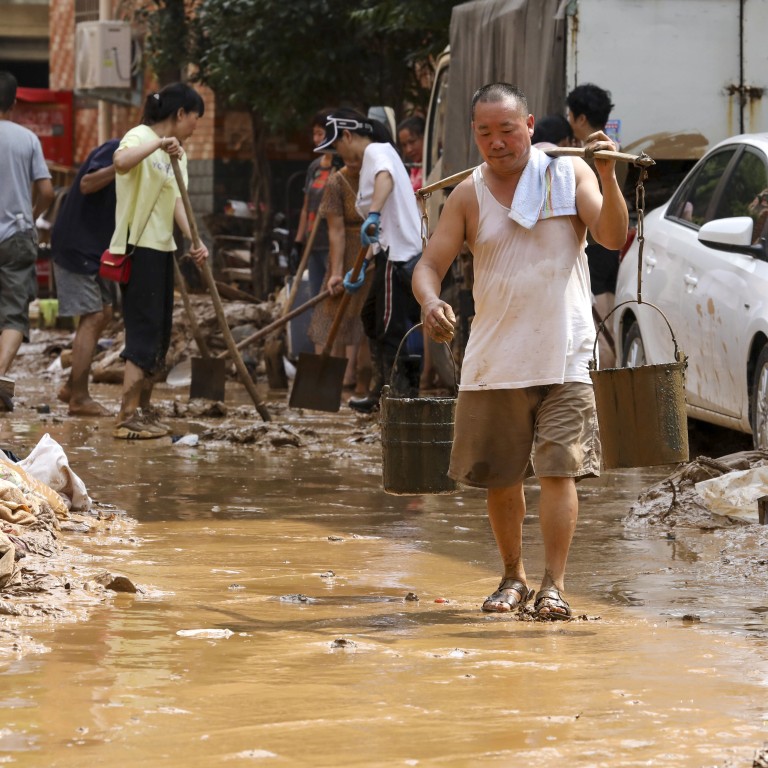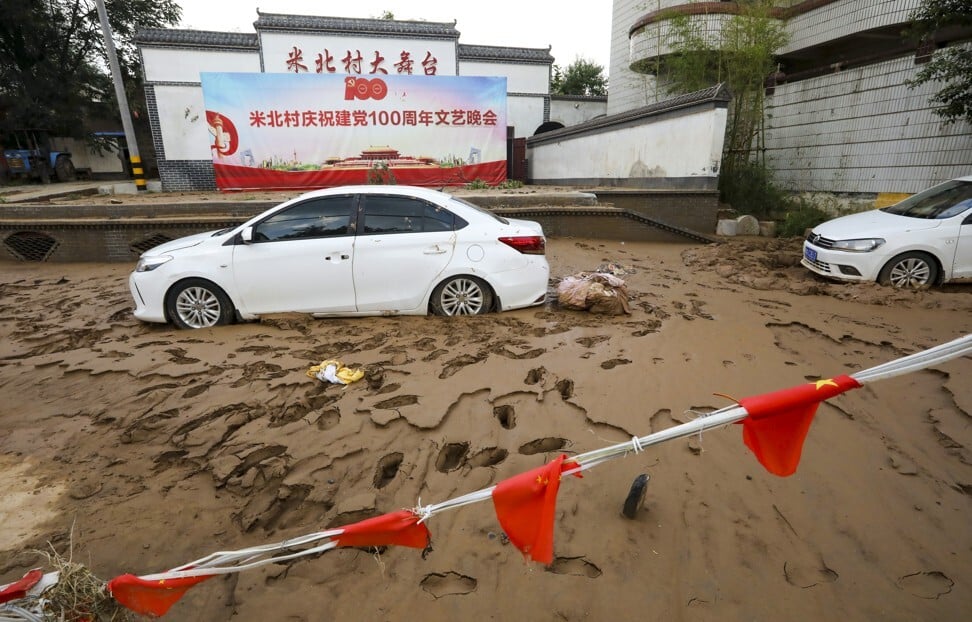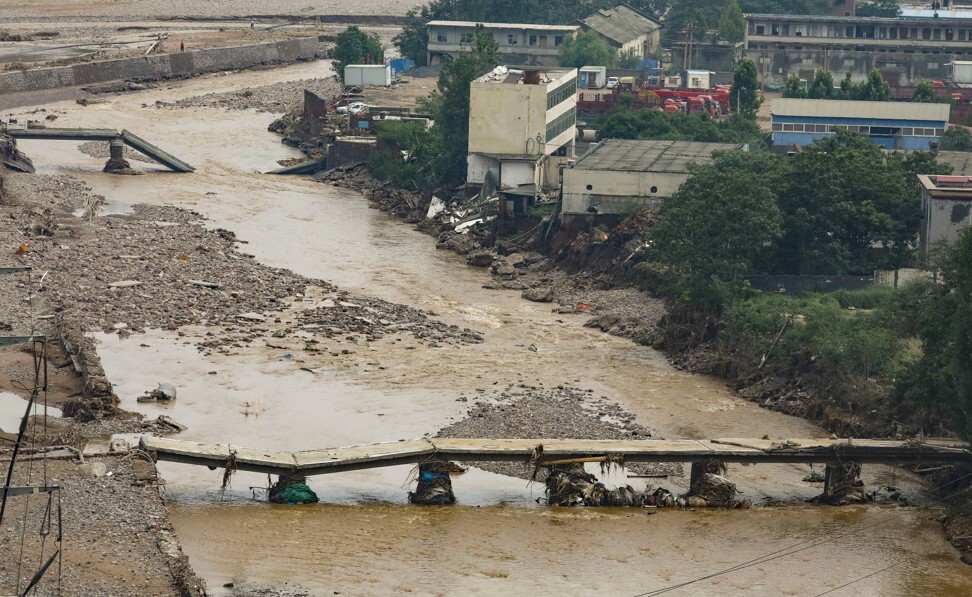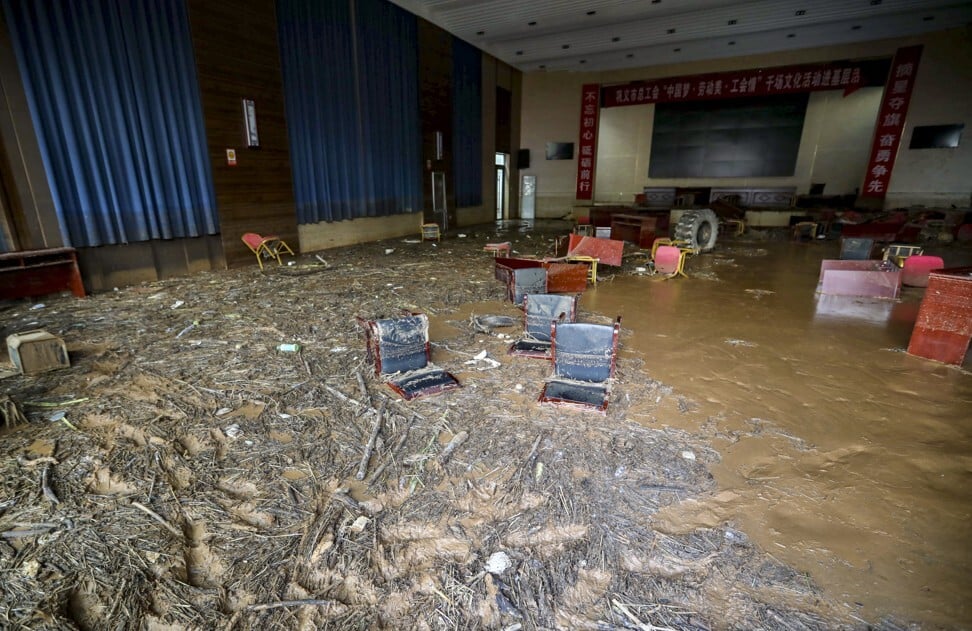
What now for the homeless from China’s floods?
- The deluge in Henan province left lives and homes in ruins
- Survivors pick through the remains to find a way to keep going
Ma Chengfeng counts himself lucky.
On Tuesday, he was woken by his wife Wang Fengjuan and the couple fled with their two children to a neighbour’s home on higher ground.
On the weekend, Ma was sitting by the side of a road covered by a thick layer of silt, staring at a community that had been washed away. Behind him, his family’s two-storey house had been reduced to a pile of bricks, broken furniture and rubbish.
“The water came so suddenly that nobody was prepared,” Ma, 36, said, as Wang picked through the rubble looking for something of value.
“I have nowhere to live now, and I don’t know what to do.”
While the downpours have stopped, those displaced are struggling to find a way to pick up their lives.
By Monday, the provincial death toll from the deluge had risen to 69, and almost 1.4 million people had been forced to leave for higher ground. More than 14,000 families have lost their homes, and over 900,000 hectares (2.2 million acres) of farmland has been inundated.
In Gongyi, one of the hardest-hit areas, four residents died and five more were still missing.
Henan is one of the country’s biggest sources of “migrant workers”, people who leave their communities to find work in other parts of China.
Ma was one of them, working in the construction industry, but he took a break and returned to Gongyi last month amid the centenary of the Communist Party.
“I used to send money home every month, about 4,000 yuan (US$617) but now I have no idea when I can go back to the city to work,” Ma said, wondering how he would pay for his children’s education if he could not go back to his job.
Throughout Mihe, vehicles damaged in the flood were piled up on the road. Power, phone and water services had not been fully restored by the weekend.
Many bridges were damaged and emergency workers were using heavy equipment to remove the blanket of silt.
Volunteers and cadres had also been mobilised to distribute supplies to residents.
In the village of Mibei, banners calling on the public to “earnestly learn the history of the Communist Party” were still on display.
But a new town hall, built at a cost of over 1 million yuan to host party activities, was severely damaged.
Party secretary Ma Yuanren said he had never thought that such heavy rain was possible.
“There hasn’t been such heavy rain in decades,” he said.
Two weeks ago he was organising celebrations for the centenary. Since the floods, he and other party cadres have been surveying losses and arranging relief work.
Ma Xingzhong, 70, who ran a bedding store in the villages, was in tears, with bedsheets and quilts soaked in the flood piled up in his shop.
He had spent 300,000 yuan treating an illness and now his business losses came to more than 60,000 yuan.
“This disaster will make life very difficult for me,” he said.




